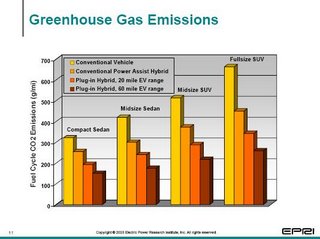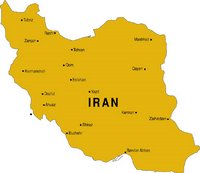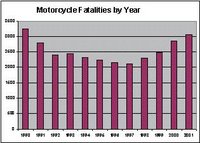The front page of a major newspaper yesterday reported “
By next week: $3 gas!”. And hurricane season doesn’t even start until June 1. After reading that headline, I rushed home after class and filled up at the cheapest gas station I could find - $2.799. To fill up my ’95 Stratus cost me almost $35!!!
Most guys my age (24) dream of sports cars with turbo-charges engines that go 0-60 in 5 seconds. I dream of a car that will go 0-60 miles without using a single drop of gasoline.
I used to believe strongly in Fuel Cell powered cars – they’re very cool. There are several problems, though, which I plan to discuss in a future posting.
In the meantime, we have technology available now that can allow people to break their weekly ritual of praying to the gas pump god. It’s known as Plug-in Hybrid Electric Vehicles or
PHEVs.
What are PHEVs?
PHEVs are really nothing more than a standard hybrid-electric vehicle – the most famous is the Toyota Prius – with an extra-large battery, a voltage inverter, and a standard 110V plug. Basically, you plug your car in at night and it charges the extra-large battery for several hours. The battery provides enough juice to keep your car going for an estimated 60 miles or so without having to turn the gasoline engine on. If you run out of battery or forget to plug in, no problem, your gasoline engine is there as backup – same goes for trips longer than 60 miles (how many of those does the average person take in a year - 5, 10, 20?)
There are a few issues that arise when switching to PHEVs:1) What are cost savings and conversion costs
2) switching one dirty fuel (gasoline) for another (electricity from coal)
3) batteries issues
4) extra load on the electric grid
Cost savings and Cost of ConversionAs reported by major news organizations, the price of gasoline is not going down anytime soon. Once it goes above $3/gallon, it’s bound to stay there, if not higher – don’t hold your breath waiting for it to come back down again. PHEVs are estimated to cost an equivalent of under $1 per gallon. We haven’t seen $1/gal gas for what seems like forever. Even if this estimate is off by a factor of two ($2/gal equivalent instead of $1), that is still going to about half of the estimated cost of gasoline.
Initially, conversion is going to be rather costly. According to
EDrive Sytems the first wave of installations will cost about $10,000-$12,000 in addition to the cost of a Toyota Prius ($21,000). That’s a lot of money – but I have seen guys my age and younger easily spending thousands of dollars to “pimp their ride” with decorations, LCD screens, rims, stereo systems, you name it!

The way I figure, you’ll probably save about $1000 per year for small cars to $2000 per year for SUVs by driving a PHEV, depending on price of gas, your current car’s mph, and price of electricity. Being optimistic, it will take about 5-10 years to make up the price of the conversion kit – about the lifetime of the car. Of course, gas prices could get much more expensive in a short time (how quickly we forget Katrina). Dare we forget the hidden cost of using gasoline – defense of oil, global warming, air pollution and health problems. It may not be the best investment in the world, but at least the money is being spent on technological advancement and is not going into the hands of greedy corporations and questionable governments.
If you think of it, though, $31,000 is not
that expensive for a car. It’s a little above average, but it is by no means near the top. A quick search on
AutoBytel will reveal that there are 49 passenger cars, 36 sports cars, and 58 SUVs that are within the $30,000-$35,000 range. People
do buy cars in this price range, so why not buy a car for a good reason instead of just looks?
Switching one dirty fuel for anotherThe idea of PHEVs is to plug the car into an electrical socket at night and have it charge for about 10 hours (assuming fully depleted). Well, that electricity is coming from somewhere. Currently, about 60% of our electricity comes from dirty coal (btw, “clean coal” is an oxymoron if I ever heard one). It varies by region and more and more regions are looking at switching to renewables (hurray!).
The obvious answer would be to install a renewable energy system in your home – solar or wind. Add a little extra capacity to make up for your PHEV’s usage. With state and federal incentives, you could potentially have the best of both worlds – cheap, clean electricity and very low gasoline costs.
Let’s assume for a moment that renewables are
not a significant source of electricity and coal remains dominant. Here is what EDrive says on their website:
“One thing that is often overlooked when electric power plant pollution is discussed, is the upstream pollution required to extract oil, transport it, refine it, distribute the gasoline then refuel a vehicle (vapor emissions). Comparing the national electrical grid to the average gallon of refined gasoline shows that the upstream pollution for gasoline production on average is much higher than that of the average electricity source.”
http://www.edrivesystems.com/faq.html

Look at the graph from a presentation given by
EPRI. The reduction in Greenhouse Gas emission is
huge – 50% across the board.
If you don’t have the resources for a renewable energy system (or it just isn’t practical), the next best thing is to buy renewable energy in the form of Renewable Energy Credits (RECs) or Green Tags. Green Tags represent the “environmental benefits” of producing renewable energy. When you buy a Green Tag, it is a promise from that company to produce the equivalent electricity using renewable energy – solar, wind, or biomass. They are inexpensive and make a
big difference. You can buy them from many organizations, even your local utility, but be careful! Some organizations play tricks and try to sell you renewable energy that has already been generated. I suggest
Krystal Planet since their Green Tags go directly into building new wind farm. There are other reputable companies out there as well.
Battery IssuesBatteries still remain a major hurdle. However, the technology is constantly improving and prices are constantly falling. New technologies, such as
lithium , nanotechnology and even
viruses, are significantly improving the price-performance of batteries.
Extra load on the electric gridIf everybody were to switch to PHEVs and got their power from the electric grid, chances are the grid won’t take it. The reality is that it will be a slow roll-out and will probably not stress the grid too much. Even if PHEVs became a significant part of America’s fleet and a load on the grid, it would be during the night when utility companies rev down or even turn off some power stations. In fact, utility companies would
love to be able to sell more electricity during off-peak – it increases their return-on-investment because otherwise the power plants would be just sitting their idle.
There is even talk of integrating PHEVs into the power grid to help store energy during the night and feeding it back into the grid during peak hours to help stabilize the grid. This is another topic for another post.
ConclusionFor now, PHEVs remain a novel technology for the bold and environmentally conscience. I think they can seriously put a dent in our “oil addiction”. There is always room for improvements. Car makers should seize the opportunity and offer PHEVs as an option – much like they do leather or navigation systems. Car makers have a way of reducing the costs like nobody else, making the technology all the more attractive
It will be a few years until I can afford to get a new car. Hopefully by then, PHEVs will be a proven technology and ready for prime-time. Personally, I want to get one to do my part to save the environment and so I don’t need to stop at the pump and watch my hard-earned money go into lining unscrupulous pockets.
If gas prices get too high, I think I’ll take my bike to the University.




























